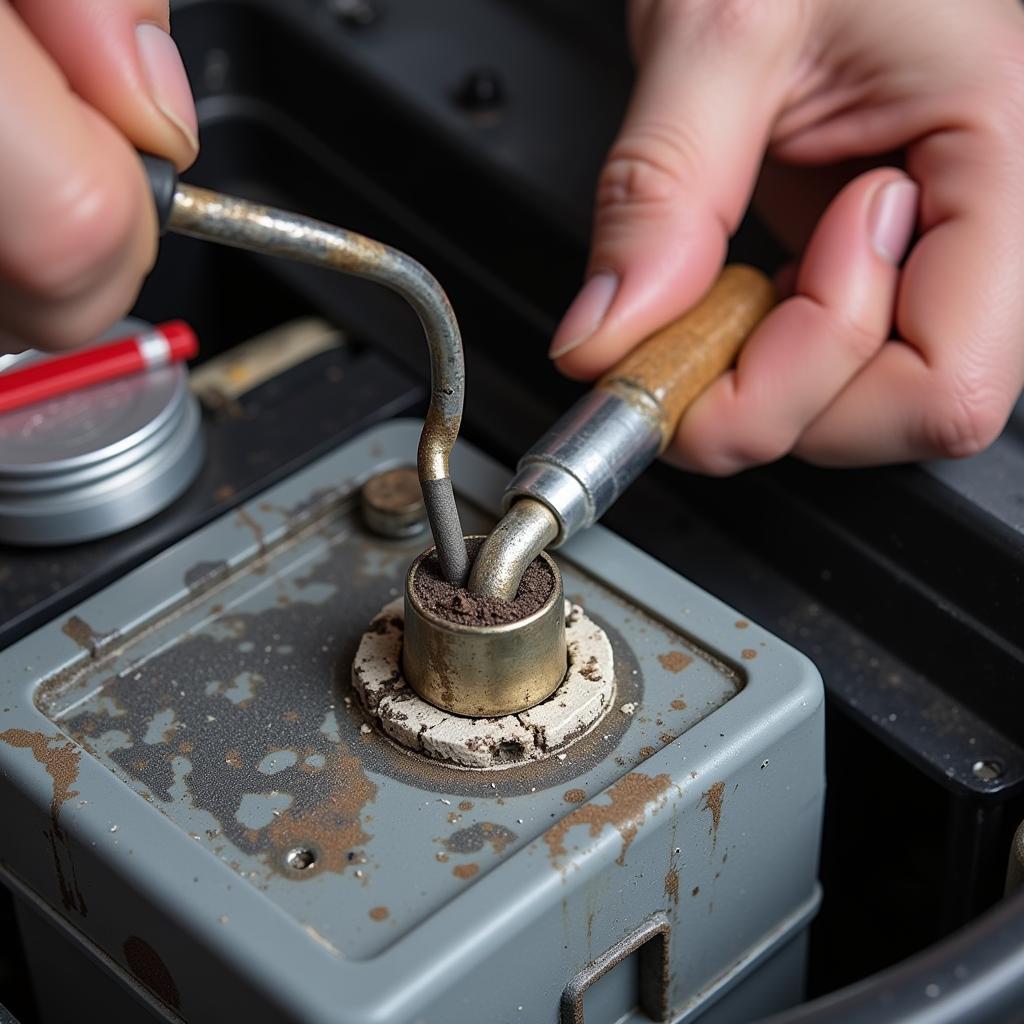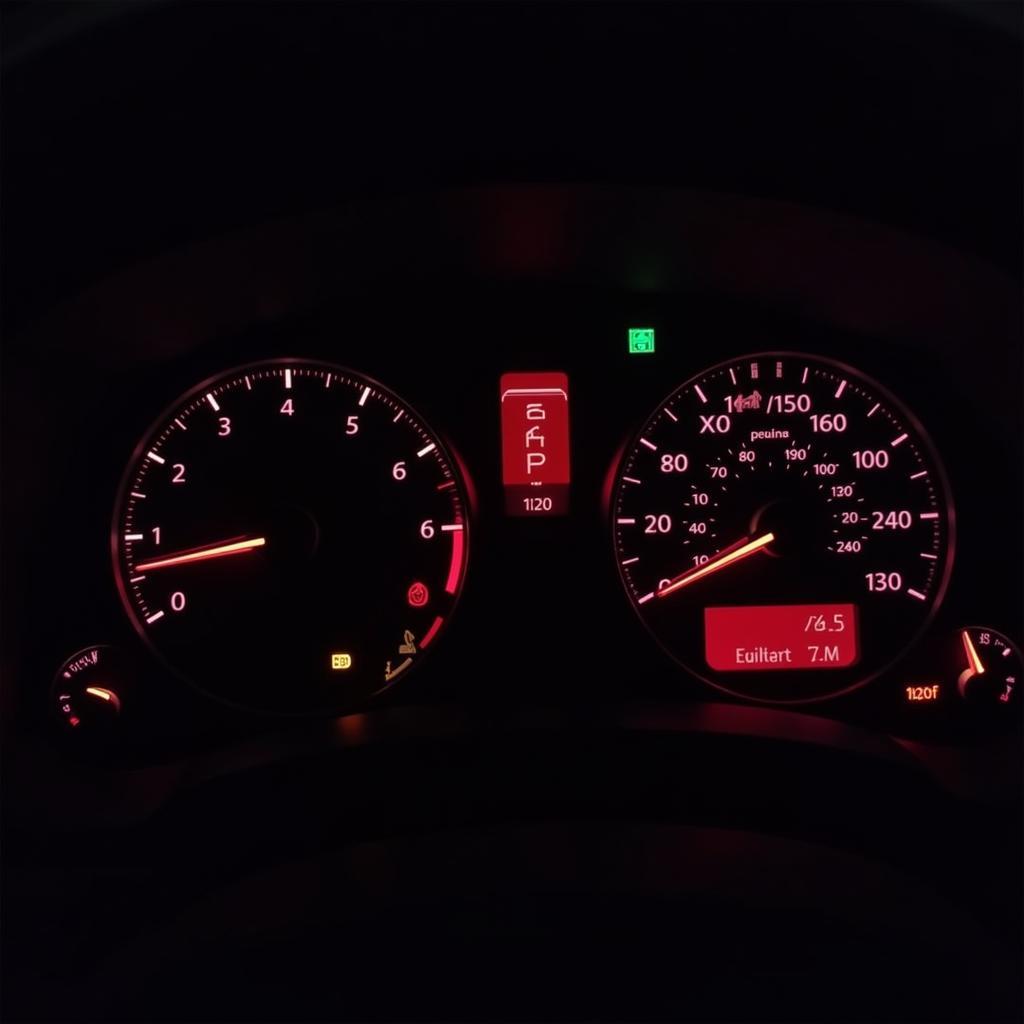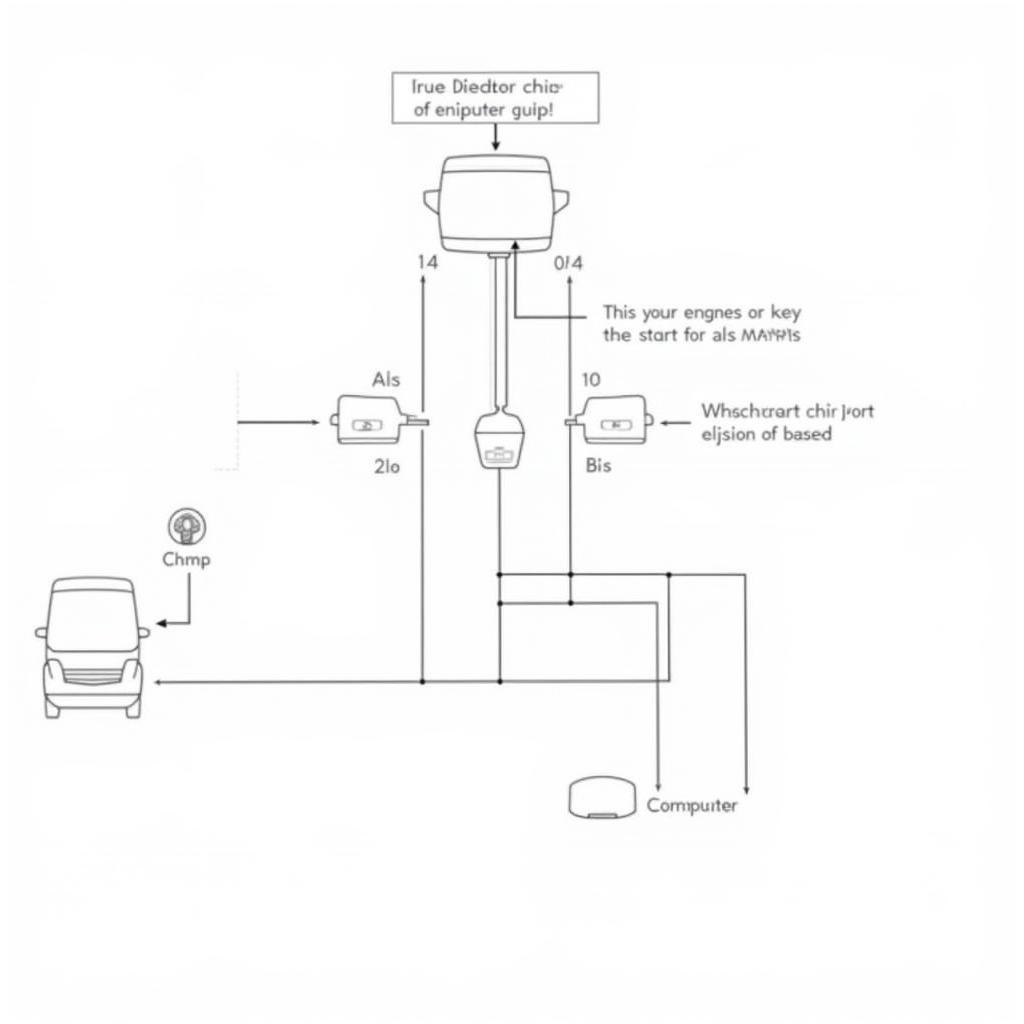A new battery should bring your car roaring back to life, but sometimes you’re met with a frustrating silence. If your new battery won’t start your car, don’t panic. There are several reasons why this might be happening, and many are easily fixed. This guide will walk you through the most common culprits and provide solutions to get you back on the road.
Why a New Battery Won’t Start Your Car
Several factors can cause a new battery to fail, from faulty installation to underlying electrical issues. It’s important to systematically check each potential problem. Is it a bad connection, a corroded terminal, or something more complex? Let’s explore the possibilities.
Checking the Basics: Connections and Terminals
First, ensure the battery terminals are clean and tightly connected. Even a new battery won’t work if the connection is poor. Corrosion can build up quickly, especially in older cars. Use a wire brush and a mixture of baking soda and water to clean the terminals. Then, double-check that the positive and negative cables are securely attached. A loose connection can prevent the battery from delivering the necessary power to the starter. You might also want to check your key fob battery, sometimes a dead key fob can be mistaken for a car battery issue. Check our guide on jeep key fob battery replacement for more information.
 Car Battery Terminal Corrosion Cleaning
Car Battery Terminal Corrosion Cleaning
Beyond the Battery: Starter, Alternator, and Fuses
If the connections are good, the problem might lie elsewhere. A faulty starter motor can prevent the engine from turning over, even with a new battery. Similarly, a malfunctioning alternator won’t recharge the battery, leading to a quick discharge, even if it’s brand new. Check your fuses as well. A blown fuse in the starting circuit can interrupt the power flow, mimicking a dead battery.
Digging Deeper: Parasitic Drain and Electrical Shorts
A parasitic drain occurs when something in your car’s electrical system continues to draw power even when the ignition is off. This can slowly drain even a brand new battery, leaving you stranded. Common culprits include interior lights, faulty radios, and aftermarket accessories. An electrical short can have a similar effect, rapidly draining the battery. These issues often require a more in-depth diagnosis using specialized equipment. You might find information on specific Jeep key fob battery replacements helpful, such as the 2018 jeep grand cherokee key fob battery or the 2021 jeep grand cherokee key fob battery.
“A common misconception is that a new battery is always good,” says automotive electrical expert, David Miller. “Manufacturing defects, improper storage, or even damage during shipping can render a new battery useless. Always test a new battery before installation.”
Troubleshooting Steps: New Battery Won’t Start
- Check the battery terminals: Clean and tighten the connections.
- Inspect the cables: Look for any damage or fraying.
- Test the battery voltage: Use a multimeter to ensure the battery is fully charged.
- Check the starter: Listen for a clicking sound when you turn the key. This could indicate a faulty starter.
- Inspect the alternator: Have it tested to ensure it’s charging properly.
- Check fuses: Look for blown fuses related to the starting circuit.
- Investigate parasitic drain: Use an ammeter to measure current draw with the ignition off.
“Don’t forget to check for the simplest things first,” advises Sarah Johnson, a seasoned auto technician. “A loose battery cable can mimic a dead battery and is often overlooked.”
Conclusion: Getting Back on the Road
If your new battery won’t start your car, it can be a frustrating experience. However, by systematically checking the potential causes, you can often pinpoint the problem and get back on the road quickly. Remember to check the basics like connections and terminals before moving on to more complex issues like the starter or alternator. If you’re unsure, seeking professional help is always a good option. Don’t let a new battery won’t start situation keep you down. A little troubleshooting can often resolve the issue quickly and efficiently. For those with a Jeep Renegade, you can also explore resources like the 2017 jeep renegade key fob battery or the general jeep renegade key fob battery replacement guide if the issue seems key fob related.
FAQ: New Battery Won’t Start
- Q: Can a brand new battery be faulty? A: Yes, occasionally new batteries can have manufacturing defects or be damaged during shipping or storage.
- Q: How do I test a new battery? A: Use a multimeter to measure the voltage. A fully charged battery should read around 12.6 volts.
- Q: What is a parasitic drain? A: A parasitic drain is a constant draw of power from the battery even when the car is off.
- Q: How do I find a parasitic drain? A: Use an ammeter to measure the current draw with the ignition off.
- Q: Could a bad alternator cause a new battery to not start? A: While a bad alternator won’t prevent a new battery from initially starting, it will prevent it from recharging, leading to a dead battery quickly.
- Q: What should I do if I’ve checked everything and the new battery still won’t start? A: Seek professional help from a qualified mechanic.
- Q: How often should I replace my car battery? A: Most car batteries last between 3 and 5 years, but various factors can affect their lifespan.



